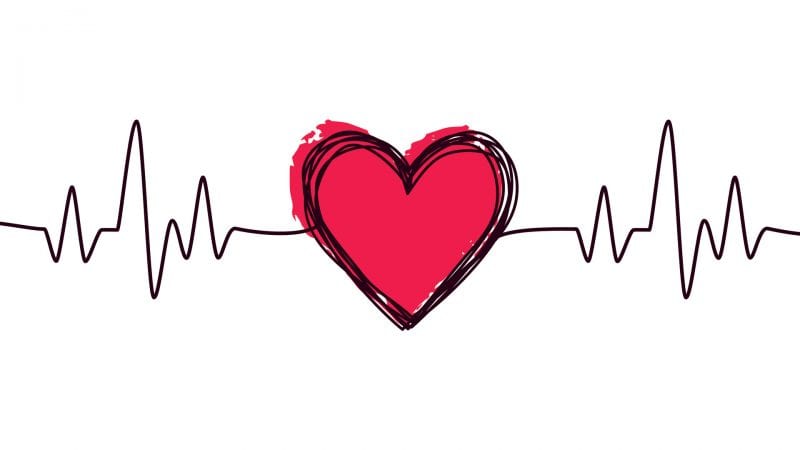Managing Stress Is Key to Maintaining Cardiovascular Health
Heart of the Matter
Americans are stressed today more than ever before, and it’s affecting their heart health.
According to the American Institute of Stress, 77% of people experience stress that affects their physical health, while the Global Organization for Stress reports that 75% of Americans experienced moderate to high stress levels in the past month. Chronic stress can affect the immune, digestive, sleep, reproductive, and cardiovascular systems.
February is American Heart Month, a time when all people can focus on their cardiovascular health.
“Studies have shown how risk factors such as smoking, obesity, high cholesterol, high blood pressure, and diabetes can lead to cardiovascular disease. While there is a lack of conclusive data, we know there is an association between emotional stress levels and increased rates of heart attacks,” said Dr. Amir Lotfi, associate chief, Division of Cardiology, Baystate Health.

“Stress can cause chest pain that isn’t necessarily associated with having a heart attack. Anxiety can increase the body’s stress hormones, cause hyperventilation, and increase the risk of muscle spasms.”
He cited a study by Harvard Medical School researchers published in the British health journal Lancet that attempted to describe how increased activity in the amygdala, a brain region involved in processing intense emotions, has been associated with inflammation in the blood vessels and increase of cardiovascular events.
Stress can be the result of many pressures from work, family, school, and other daily responsibilities, as well as brought about by losing a job, the loss of a loved one, divorce or illness, even worry over COVID-19.
“We also know that stress can cause chest pain that isn’t necessarily associated with having a heart attack,” Lotfi said. “Anxiety can increase the body’s stress hormones, cause hyperventilation, and increase the risk of muscle spasms. This can lead to similar symptoms as a heart attack, and it can be difficult to distinguish chest pain due to impaired blood flow to the blood vessels of the heart compared to chest pain due to anxiety or other causes. The important thing to remember is that ‘time is muscle,’ and if you have chest pain which is new or has not been evaluated previously, you should get checked immediately.”
According to the National Institute of Mental Health, taking practical steps to manage stress may reduce the risk of negative health effects. Among the tips offered to cope with stress are:
• Get regular exercise. Just 30 minutes per day of walking can help boost your mood and improve your health.
• Try a relaxing activity. Explore relaxation or wellness programs, which may incorporate meditation, muscle relaxation, or breathing exercises. Schedule regular times for these and other healthy and relaxing activities.
• Set goals and priorities. Decide what must get done now and what can wait. Learn to say ‘no’ to new tasks if you start to feel like you’re taking on too much. Try to be mindful of what you have accomplished at the end of the day, not what you have been unable to do.
• Stay connected. You are not alone. Keep in touch with people who can provide emotional support and practical help. To reduce stress, ask for help from friends, family, or the community of religious organizations.
“Don’t let stress overtake you,” Lotfi said. “If you are feeling overwhelmed, talk to your healthcare provider, who can discuss treatments that can help ease your stress and help to keep you out of the cardiologist’s office.”
Know the Risk Factors
Baystate physicians note that seeing a primary-care provider regularly can also help to prevent chronic illnesses such as heart disease.
“When detected early, heart disease is much easier to treat. So it is important to talk with your doctor or advanced practitioner about new symptoms that you are having,” said Dr. Stephanie Silverman of Baystate Family Medicine – Northampton. “If you don’t already have a primary-care provider, this is a good time to find one.”
A doctor or advanced practitioner can help identify and manage risk factors for heart disease by partnering with the patient to create a wellness and prevention plan.
“The good news is that you can significantly reduce your risk of heart disease by leading a healthy lifestyle,” Silverman said. “However, there are some risk factors that cannot be changed, such as increasing age, ethnic group, gender — men have a greater risk of heart attack than women — and having close family members with heart disease. People whose parents have heart disease are at greater risk for developing it themselves.”
Silverman noted that several health conditions can increase one’s risk of heart disease. About half of all Americans have at least one of three key risk factors: high blood pressure, high cholesterol, and diabetes.
According to the National Diabetes Statistics Report, the risk of death from heart disease is higher for adults who have diabetes than those who don’t. Diabetes causes sugar to build up in the blood, which damages the inner linings of both large and small arteries.
Another serious risk factor is high blood pressure, when the pressure of the blood in the arteries is too high.
Also, unhealthy blood-cholesterol levels can contribute to heart disease. Cholesterol is a waxy, fat-like substance made by the liver and found in certain foods, which can build up in the walls of the arteries. It can then lead to a narrowing of those arteries and decrease the blood flow to the heart.
Obesity, or excess body fat (especially around the waist) can lead to heart disease, even if other risk factors are not present. Obesity can also contribute to the development of high blood pressure, high cholesterol, and diabetes, all risk factors for heart disease.
“All of these risk factors — high blood pressure, high cholesterol, diabetes, and obesity — that can lead to heart disease can be prevented or treated with medications or lifestyle changes,” Silverman said. “Part of what we do in primary care is to work with you to help you to minimize these risks and stay as healthy as possible.”
Other major risk factors that contribute to heart disease include smoking, physical inactivity, alcohol, an unhealthy diet, and stress. Smoking, alcohol, and stress can raise blood pressure. An unhealthy diet of saturated fats and foods high in sodium and added sugars can also raise blood pressure and cholesterol levels. Not getting enough physical exercise can lead to obesity, high blood pressure, high cholesterol, and diabetes.
“Your primary-care doctor or advanced practitioner can help you to make lifestyle changes to address these behaviors and set you on a path to a healthier you by reducing your risk of heart disease,” Silverman said.




